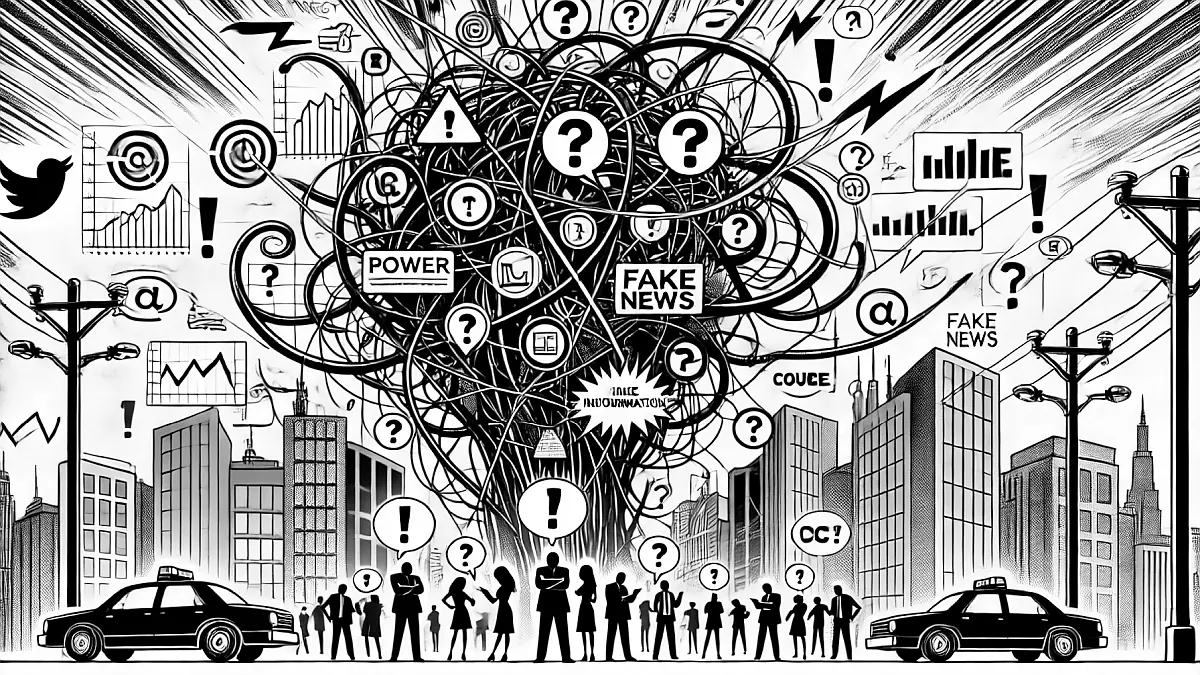 illustration: DALL-E
illustration: DALL-EDisinformation in Poland’s energy sector is becoming a serious challenge. It’s no longer just a media issue - it’s a threat to national security, public trust, and long-term investment. According to a report from the Institute of Media Monitoring (IMM), the volume of publications discussing disinformation in energy doubled in 2025 compared to the year before. The scale and impact of these false narratives are growing fast.
As Joanna Rafał from IMM points out, "Disinformation undermines Poland’s energy security and delays investments". Her analysis shows that public opinion can shift quickly when emotional and misleading content spreads. This, in turn, affects policy-making and investor confidence. People start questioning expert advice, doubt the benefits of renewable energy, and resist changes that are vital for Poland’s future.
How media in Poland react? IMM tracked nearly 70,000 unique publications warning and condemning disinformation between 2022 and 2025. These stories reached more than one billion views and impressions. That means the average internet user in Poland may have come across disinformation warrning about energy at least 37 times in one year.
| year | number of publications |
|---|---|
| 2025 | 27,498 |
| 2024 | 13,596 |
| 2023 | 11,479 |
| 2022 | 17,297 |
But much of false content spreads on social media. Platforms like Facebook and X (formerly Twitter) are the main arenas. Many messages repeat similar false claims and often come from political or ideological groups, including anti-EU and far-right networks. Some messages even originate from official-sounding sources, making them more dangerous.
The most targeted issue is nuclear energy. According to a joint report from NASK and the Polish National Security Institute, this topic attracts conspiracy theories, fear-based messaging, and unscientific arguments. Russian propaganda has played a central role. In just the first quarter of 2024, sources tied to Russia generated over 34 million online posts aimed at weakening public trust in climate policies and clean energy investments.
The EY cybersecurity report adds another layer of concern. In 2023, the number of cyberattacks on the energy sector doubled year-over-year. These included phishing scams where criminals pretended to be energy companies like PGE or Tauron. Victims received fake emails about refunds or overpayments and unknowingly shared sensitive information. These scams led to direct financial losses for individuals.
In response, the government and industry organizations have launched counter-campaigns. The Ministry of Energy’s initiative, "Don’t Get Fooled - Check the Facts", helps the public understand common energy myths. The Polish Society of District Heating Engineers also runs a campaign called "Energy for Real", focusing on science-based information.
Still, as Joanna Rafał emphasizes, more must be done. "Only facts - not emotions - can build trust in times of change", she says. This means constant monitoring, responsible journalism, and strong public awareness campaigns.
If disinformation continues unchecked, Poland may struggle to reach its energy goals and protect its citizens from manipulation and fraud.
COMMERCIAL BREAK
New articles in section Media industry
Freelancers 2025 in media and advertising. Useme report
Krzysztof Fiedorek
The modern media and communication market presents entirely new challenges for independent creators. Traditional services are giving way to more complex forms of messaging. The most popular industries in which Polish freelancers operate focus on companies' online presence and visual content.
Video content in Poland. What and how we watch
Paweł Sobczak
Video content is watched remotely, but streaming services are mainly enjoyed in the comfort of home. This is how the consumption of audiovisual content by Poles in 2025 can be summarized. This is the result of an analysis of a study conducted by SW Research and data from the company MEGOGO.
How artificial intelligence misrepresents the news. PBC analysis
Sylwia Markowska
In news summaries generated by the most popular models in Polish, as many as 46% of responses contained at least one significant error, 27% had serious issues with sources (missing, misleading, or incorrect), and 19% contained hallucinations and outdated information.
See articles on a similar topic:
Reading Industry Magazines in Poland 2024: PBC Report
Sylwia Markowska
76% of readers of industry magazines are responsible for purchasing decisions in their workplace. To deepen the understanding of the role of industry press and how it is read, PBC surveyed 2051 respondents from 5 different sectors, gaining the latest insights into the reading habits of this segment of the press in Poland.
Digital Newspapers in Poland
Bartłomiej Dwornik
The three largest distributors of digital press editions in Poland sell around 270,000 e-magazine copies monthly, according to Money.pl analysis. Digital press is mostly read by experienced internet users, managers, and emigrants.
YouTube vs. Television. The 50+ Generation Shifts to Computers
Krzysztof Fiedorek
For years, so-called "silvers" were primarily associated with traditional media like television. However, research by IQS for SilverTV and Lifetube shows that this view is outdated. The report’s findings clearly demonstrate that YouTube is becoming the new “television.”
Artificial Intelligence in the Media. Reuters Digital News Report 2024
Krzysztof Fiedorek
AI has gained prominence in recent years, and its application in producing, distributing, and presenting news content continues to grow. However, this development is met with mixed feelings by audiences, which has significant consequences for media trust and its future.





























